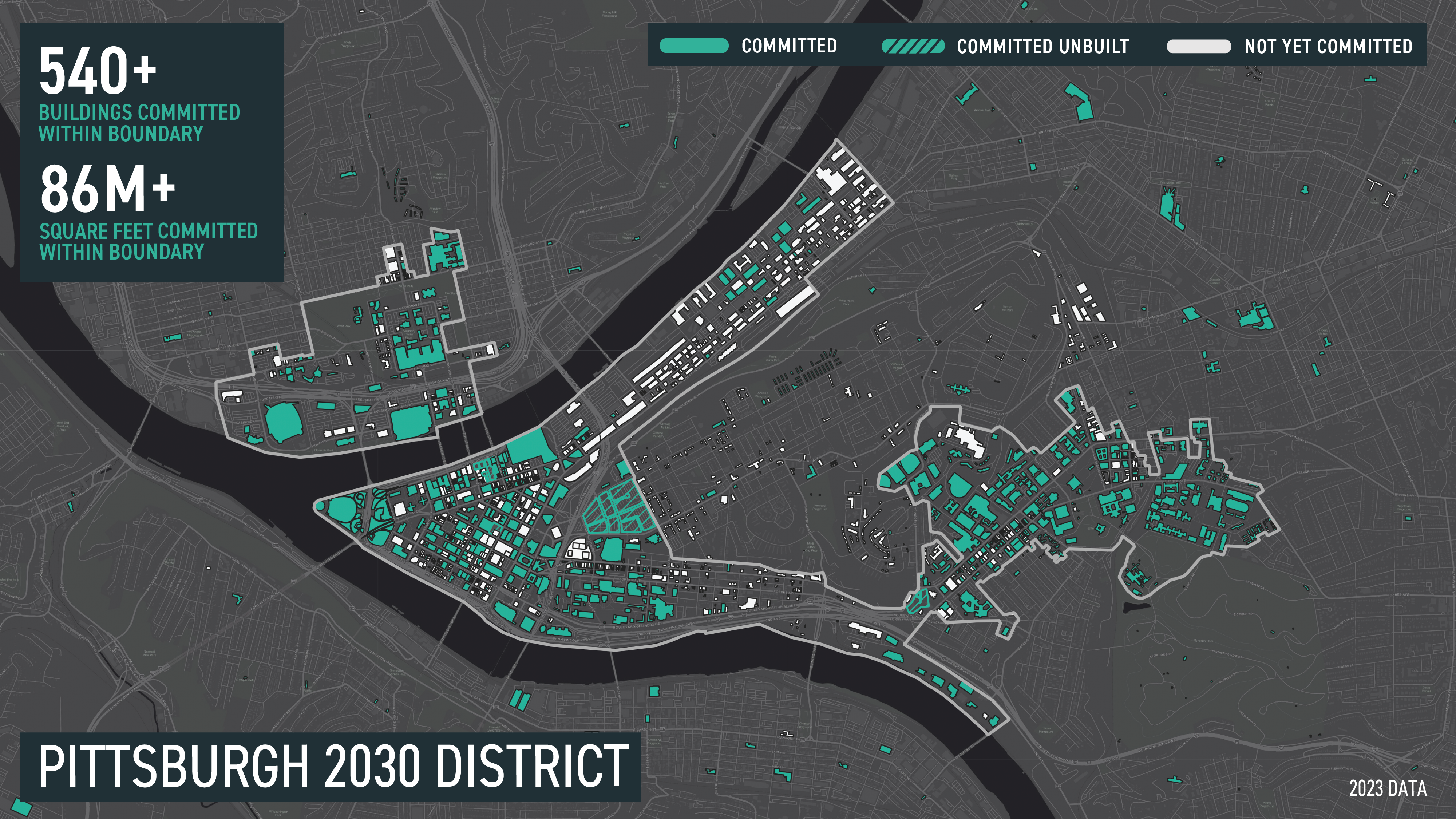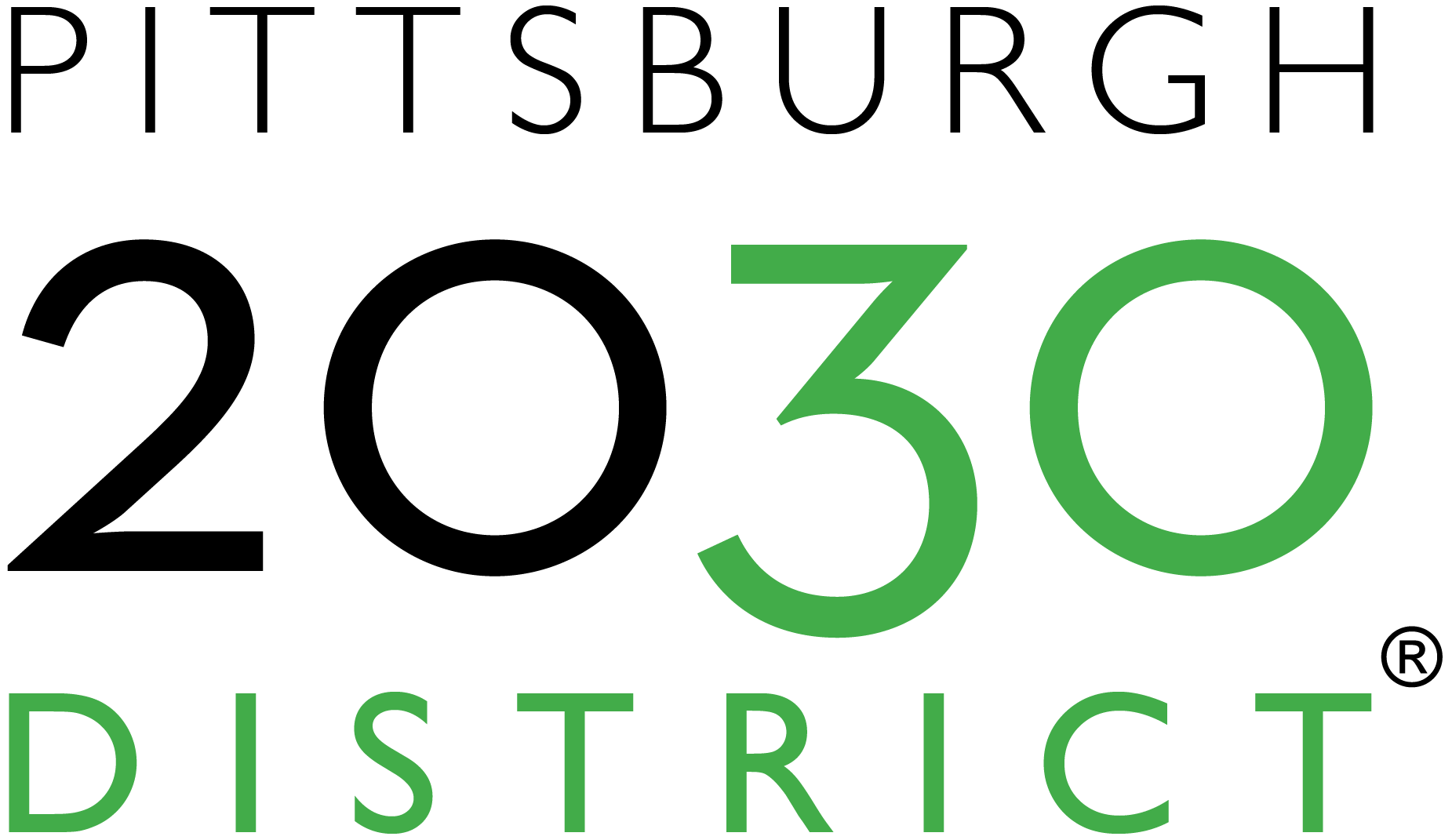The Pittsburgh 2030 District, presented by Covestro, is an internationally recognized, locally driven strategic initiative of Green Building Alliance (GBA) that supports building owners and managers as they strive towards dramatic improvements in building performance. Local properties commit to the 2030 Challenge goals: 50-65% reductions in carbon emissions for existing buildings and zero carbon for new construction and major renovations by the year 2030, while reducing water consumption and improving indoor air quality.
Connect with the Pittsburgh 2030 District and learn more about its progress on GBA’s website.
The Pittsburgh 2030 District connects Property Partners with Community and Resource Partners, driving industry-leading performance through peer-to-peer learning, technical trainings, and data benchmarking.
The District leads all 22 international 2030 Districts with over 86 million square feet committed, and has collectively saved $469M in energy and water costs since 2012. The Pittsburgh 2030 District is the first 2030 District to have collected and analyzed indoor air quality data.
Because buildings account for 42% of global CO2 emissions and 39% of all U.S. primary energy use, addressing the way we operate and maintain our buildings matters. The Pittsburgh 2030 District was formed to convene regional property managers and help them reduce emissions, decrease energy demand and water use, and improve indoor air quality, all while saving utility costs.
Properties that join the 2030 District make a nonbinding, good faith pledge to work toward a 50%-65% reduction in emissions by 2030 and a goal of zero emissions by 2040. In doing so, they gain access to GBA technical expertise, analysis of their building’s performance, education on best practices and market trends, and join a community of local building owners and operators.
GBA’s 2030 District programming includes educational sessions, case studies, demonstrations, tours and more on these topics and more:
- beneficial electrification and transitioning to a cleaner grid
- buying renewable energy credits (RECs)
- adding on-site renewable energy sources such as solar
- embodied carbon of building materials
- refrigerants
- adaptive reuse of buildings and materials in new construction and existing building renovations
- thermal storage
Joining the Pittsburgh 2030 District also places you in a transformative movement that is uniting leading organizations in the region’s high growth industries and creating unprecedented collaboration between sectors, including healthcare, hospitality, higher education, and technology. This movement is continuing to grow through an expansion to Erie, PA in 2018 and future expansions planned for New Kensington, PA.
Pittsburgh 2030 District Map – May 2023

